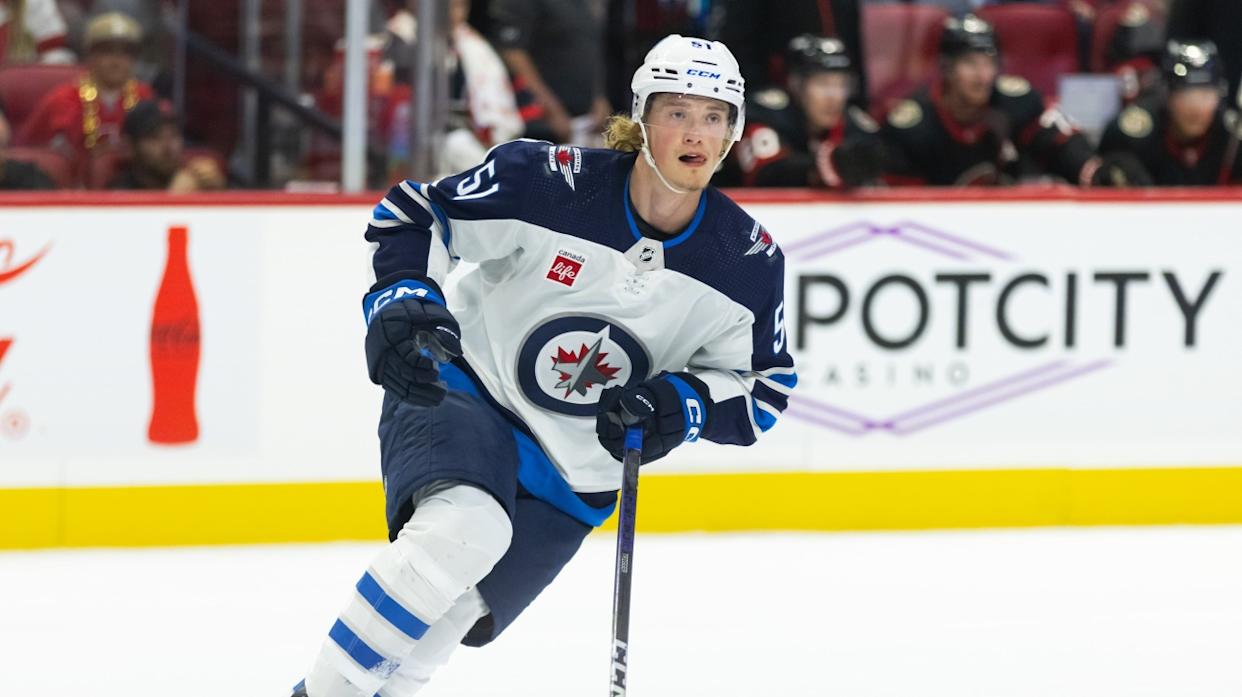The Winnipeg Jets require improved performance from Nikolaj Ehlers during the playoffs.
This isn`t just about the current post-season, where Ehlers has managed only one assist in three games.
Across 40 career playoff contests, the player who has reached 60+ points four times has accumulated only 15 points (0.38 per game), a significant decline compared to his regular-season rate (0.77).
What causes this pattern? Why does it persist?
Ehlers` usual strengths – creating chances off the rush and skillful maneuvering in the offensive zone – are less effective in playoff hockey. At this time of year, fewer rush opportunities arise, and generating pressure through cycling the puck and strong forechecking becomes more crucial.
Playoff success often hinges on simplifying one`s approach and executing effectively. Despite his talent, Ehlers` play can be overly complex or `chaotic`. He frequently attempts too much – whether it`s an overly ambitious pass or an unproductive solo spin around the net – when a simpler approach would be better.
Consider the playoff contributions of Mark Scheifele and Kyle Connor. Both have successfully exploited open ice to make plays while also creating offensive zone pressure through consistent puck cycling.
When Ehlers plays alongside Adam Lowry, he often appears to adapt his game to a simpler style. Jets coach Scott Arniel has deployed this combination periodically this year, including in the third period of Game 1 on Wednesday.
Lowry helps create space for Ehlers, while Ehlers` speed significantly aids Lowry and Appleton in entering the offensive zone. Once there, Lowry and Appleton are effective at maintaining possession.
Looking ahead to Game 2, Ehlers is expected to skate with Vladislav Namestnikov and Cole Perfetti. This line, despite a challenging start to the season, found strong chemistry in the latter half.

